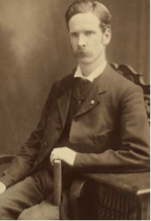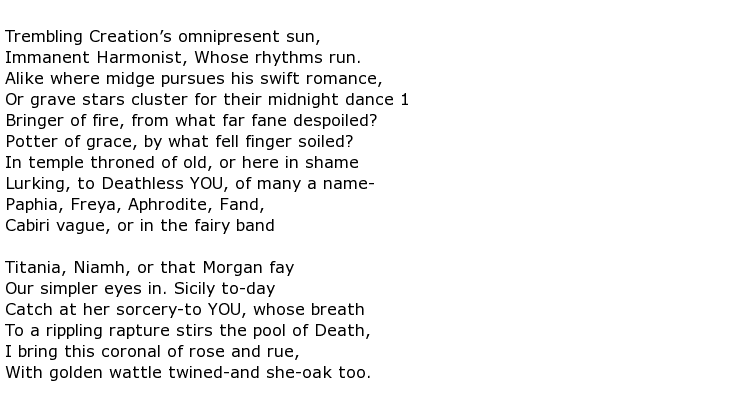 Bernard O’Dowd was an Australian poet who authored a number of books on poetry and the law. He worked as a journalist on several publications, including the radical newspaper called Tocsin and, at times, he was also a teacher and political activist. Over a period of 48 years he served the Melbourne Supreme Court, first as assistant-librarian and then, from 1913, as Chief Parliamentary Draftsman. In this latter post he was responsible for the drafting of new laws before politicians promulgated them.
Bernard O’Dowd was an Australian poet who authored a number of books on poetry and the law. He worked as a journalist on several publications, including the radical newspaper called Tocsin and, at times, he was also a teacher and political activist. Over a period of 48 years he served the Melbourne Supreme Court, first as assistant-librarian and then, from 1913, as Chief Parliamentary Draftsman. In this latter post he was responsible for the drafting of new laws before politicians promulgated them.
He was born Bernard Patrick O’Dowd on the 11th April 1866 in Beaufort, Victoria into a family of Irish migrants. He was clearly a bright child, as evidenced by his reading of John Milton’s Paradise Lost while still only eight years old. He moved into teaching at an early age, including filling the post of head teacher at a Catholic school from which he was dismissed for heresy. He tried his luck again though, this time opening his own school before moving away from Beaufort in favour of the brighter lights of Melbourne.
Still only 21 he found employment with the Supreme Court Library and he remained there until his retirement in 1935. On arriving in the city he immediately joined the Melbourne Lyceum which was the educational and social branch of the Australian Secular Society. This was a radical movement which attracted a number of anarchists who were soon expelled from its membership. O’Dowd himself joined these individuals in a new, more progressive group called Lyceum and thus began his long career as a political activist which he, somehow, managed to keep separate from his civil service duties with the court.
His poetic output was also at odds with his official duties. An example was Hoist the Flag which he published in the Lyceum Tutor paper. It was a poem containing anarchistic/communist view points and was typical of O’Dowd’s radical thinking at that time. He was stridently opposed to the Australian Federation and, in particular, any involvement in the Boer War. His 1902 pamphlet “Conscience and Democracy” was a clear attack on this conflict.
He went on to join religious groups such as the Free Religious Fellowship and followed this with the Victorian Socialist Party, an organisation which he co-founded in 1905. As editor of The Socialist magazine he joined in the denouncements of the so-called “White Australia” policies, stating that they were “unbrotherly, undemocratic and unscientific.”
While all this was going on he found the time to write and was editor (sometimes ghost writer) of a number of books on the law. He published six collections of poetry between the years 1903-1921, including Dawnward, in 1903, and Alma Venus in 1921. The latter was the title of an epic poem with strongly religious themes and written in a flowery, complex style. Here is an extract from the poem:

O’Dowd married and fathered five sons but he left his wife in 1920 to live with Marie Pitt, a fellow socialist and poet. The two of them shared the view that Jesus Christ was an anarchist. His life seemed to be a constant struggle between his radical beliefs and his official duties working with the Australian government but he managed it well enough, living to a ripe old age.
Bernard O’Dowd died on the 1st September 1953, aged 87.

